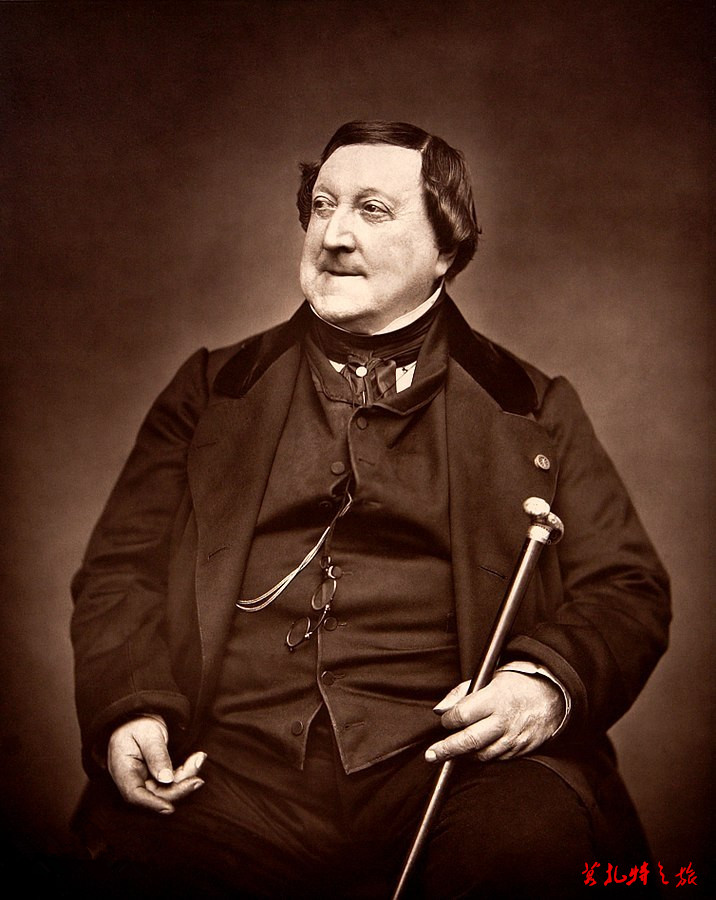|
||||||||||||||||||||||||||
 |
 |
|||||||||||||||||||||||||
|
|

|
|||||||||||||||||||||||
|
|
|
||||||||||||||||||||||
| 安东尼奥·罗西尼(Gioacchino Rossini 1792-1868) | |||||||||||||||||||||||
阿巴多指挥《塞维利亚的理发师》序曲 |
|||||||||||||||||||||||
|
|
|||||||||||||||||||||||
|
音乐历史上的今天 1816年2月20日,罗西尼仅用了三个星期就完成了《塞维利亚的理发师》,又名《阿玛维瓦伯爵》,被帕伊谢洛(Giovanni Paisicllo)的崇拜者激烈攻击,后者也曾经把这出博马舍(Beaumarchais)的喜剧改编成歌剧,“从剧院的后门走出来时,我非常不幸的被人认了出来,一个愤怒的暴徒举着拳头追着我.....我以为我的末日就要来了.......”在第二次演出后,罗西尼再次被新一轮崇拜者围攻。
焦阿基诺·安东尼奥·罗西尼(Gioacchino
Rossini,1792年出生于意大利东部威尼斯海湾的港口城市佩萨罗,1868年逝于法国巴黎),意大利作曲家,生前创作了39部歌剧以及宗教音乐和室内乐。 |
|
||||||||||||||||||||||
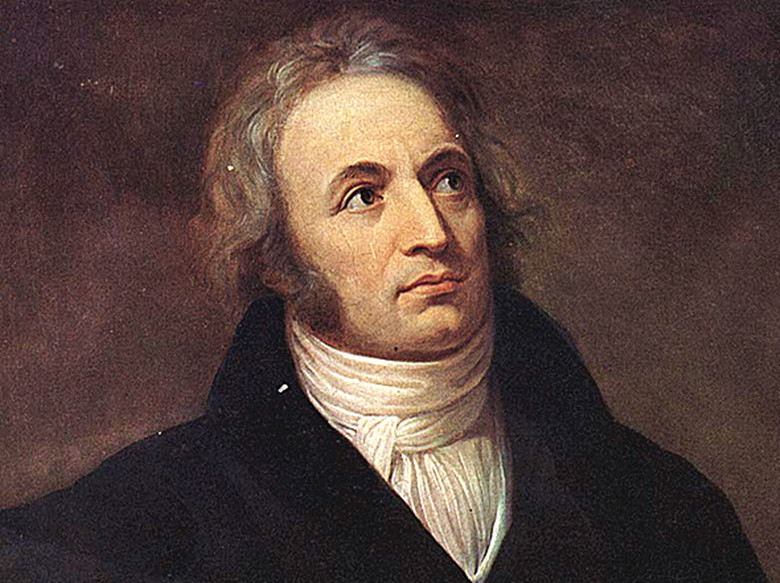 |
|||||||||||||||||||||||
| 帕伊谢洛 (Biography) | |||||||||||||||||||||||
|
帕伊谢洛生平 Biography 意大利作曲家。出生于塔兰托附近。1754年求学于那不勒斯圣奥诺夫廖音乐学院。1759年毕业后,留校任教至1763年。他最初写作弥撒曲、清唱剧等宗教音乐,1763年他为校内剧场写的幕间剧很受欢迎,从此转向意大利喜歌剧的创作。1776-1784年,应俄国女皇叶卡婕琳娜二世之聘,在圣彼得堡任宫廷指挥兼意大利歌剧院的音乐指导。1782年演出了他的著名歌剧“塞维利亚的理发师”。1784年他回到那不勒斯,在斐迪南四世的宫廷任乐长。1799年法兰西共和军占领那不勒斯,斐迪南四世逃到西西里,帕伊谢洛又出任新共和国的国家乐长。1802年拿破仑召他去巴黎担任皇家小教堂乐长,1804年回那不勒斯。1815年波旁王政复辟,斐迪南四世重回那不勒斯,帕伊谢洛因曾为拿破仑效劳而受到歧视,最后抑郁而死。 意大利作曲家。出生于塔兰托附近。1754年求学于那不勒斯圣奥诺夫廖音乐学院。1759年毕业后,留校任教至1763年。他最初写作弥撒曲、清唱剧等宗教音乐,1763年他为校内剧场写的幕间剧很受欢迎,从此转向意大利喜歌剧的创作。1776-1784年,应俄国女皇叶卡婕琳娜二世之聘,在圣彼得堡任宫廷指挥兼意大利歌剧院的音乐指导。1782年演出了他的著名歌剧“塞维利亚的理发师”。1784年他回到那不勒斯,在斐迪南四世的宫廷任乐长。1799年法兰西共和军占领那不勒斯,斐迪南四世逃到西西里,帕伊谢洛又出任新共和国的国家乐长。1802年拿破仑召他去巴黎担任皇家小教堂乐长,1804年回那不勒斯。1815年波旁王政复辟,斐迪南四世重回那不勒斯,帕伊谢洛因曾为拿破仑效劳而受到歧视,最后抑郁而死。 |
|||||||||||||||||||||||
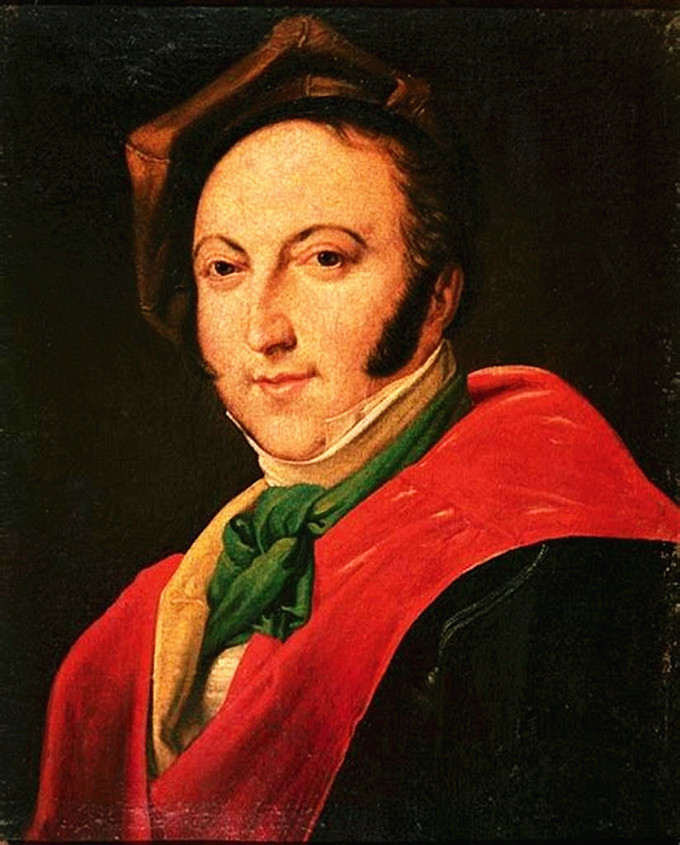 |
|||||||||||||||||||||||
| 安东尼奥·罗西尼(Gioacchino Rossini ) | |||||||||||||||||||||||
|
焦阿基诺·罗西尼1792年2月29日出生在意大利威尼斯湾上的小镇皮萨罗。他的父亲老罗西尼曾是一家屠宰场的检验员,后因拥护民主共和政体,在封建政权复辟后被革职。他的妻子原是剧院里的歌唱演员,丈夫被革职后,夫妻双双成为流浪艺人。小罗西尼自幼跟随父母到处漂泊,过着四海为家的巡回演出生活。 罗西尼的童年多半是在波伦亚——意大利的一个著名的音乐中心度过的;在这样一个音乐气氛特别浓厚的城市里,他从小就开始学习弹奏羽管键琴和唱歌。大约10岁时,他便参加了教堂合唱队,帮助家里挣钱。罗西尼童年时极其顽皮,精力充沛,常常做出备种越轨行为。12岁时,他开始接受比较有系统的音乐教育。他改邪归正,很快地,他不论在歌唱、弹伴奏和吹奏法国号等方面都有了很大的成就。1807年罗西尼进波伦亚音乐学院深造,在学校里他专心研究海顿和他所崇拜的莫扎特的作品。就在这一段学习期间,他已写出了大量的作品,其中包括宗教音乐作品、声乐作品和器乐曲等。 18 10年罗西尼为了负担家计离开了音乐学院,立即投入歌剧创作之中。 罗西尼的早期歌剧创作,要算1813年在威尼斯首演的《坦克雷迪》最为成功。因此罗西尼也一跃成为意大利最有声望的作曲家。他相貌英悛,喜欢姑娘们,姑娘们也喜欢他。当然,年轻时的欢闹作乐丝毫没有影响他作为音乐家的声望。 罗西尼在他的歌剧《威廉·退尔》上演后,曾多次做演奏旅行,在1836年间他回到意大利。但在50年代中期,罗西尼由于患病,不得不再迁居巴黎。1868年11月13日,罗西尼在巴黎附近逝世。他的骨灰安葬在意大利佛罗伦萨的一所教堂里。 罗西尼毕业后,也像他父亲那样参加了流浪剧团,在剧团中,他又是演员,又是乐队指挥,同时还是作曲者。为了适应各城市不同观众的不同口味和要求,罗西尼每年大约要写四至五部歌剧,这些歌剧多采用喜歌剧体裁写成。 1815年春,罗西尼应那不勒斯一所大剧院的聘请担任剧院作曲家的职务,从此,他那将近5年的“流浪”生活宣告结束。罗西尼在那不勒斯时期的已臻炉火纯青境地的歌剧创作,大都属于这种意大利正歌剧的范畴。1822年,罗西尼在巴黎时负责管理意大利歌剧的演出事宜,为宣扬意大利歌剧做出很大贡献。 1820至1821年间,由于国内政治空气的窒闷大大地限制了艺术的发展。因此在1822年罗西尼便随意大利歌剧团遍游欧洲各国。从1824年起,他在法国巴黎定居。 罗西尼努力的目标在于创作法国歌剧——他费了很大的功夫苦心孤诣地研究法国语言、法国民歌和法国歌剧的传统,并为法国舞台改作了他在意大利时所写的一部分早期作品,最后又在1829年用法文剧词和法国大歌剧的风格写出了他的最后一部歌剧《威廉·退尔》。在这部歌剧中,罗西尼创造出英雄浪漫主义的新典范。罗西尼在创作这部歌剧时还不过37岁,但自此之后他虽然还活了差不多40年,却再也没有写过歌剧,而仅仅创作了《庄严弥撒》、《圣母哀悼曲》以及一些钢琴曲等,这在音乐史上一直是一个非常奇特、同时也是非常难以解释的现象。 |
|
||||||||||||||||||||||
|
Gioacchino Rossini
was born on February 29, 1792, in pizarro, a small town on the bay of
Venice, Italy.His father, Rossini the elder, had been a slaughterhouse
inspector and had been dismissed after the restoration of the feudal
regime for his advocacy of democratic republicanism.His wife was a
singer in the theater. After her husband was dismissed from his job,
they both became street entertainers.Rosini was born with his parents
and lived a life of touring. Rossini spent most of his childhood in bologna, a famous music center in Italy.He began to learn to play the harpsichord and to sing at an early age in a city with a particularly musical atmosphere.When he was about 10, he joined the church choir and helped the family earn money.Rosini was extremely playful and energetic in his childhood, often committing devious ACTS.At the age of 12, he began to receive more systematic music education.He reformed, and soon made great achievements in singing, playing accompaniment, and playing the French horn.In 1807 rossini entered the bologna conservatory of music, where he concentrated on the works of Haydn and his favorite Mozart.During this period of study, he has written a large number of works, including religious music, vocal music and instrumental music.Rossini left the conservatory in 1810 to support his family and immediately devoted himself to opera. One of Rossini's earliest operatic compositions was tancredi, first performed in Venice in 1813.So rossini became one of the most famous composers in Italy.He has a tough-looking face and likes girls, and the girls like him, too.Of course, his youthful musicianship did nothing to diminish his reputation as a musician. Rossini made several concert trips after the performance of his opera William tell, and returned to Italy in 1836.But in the mid-1950s, rossini had to move to Paris because of illness.Rossini died near Paris on November 13, 1868.His ashes are buried in a church in Florence, Italy. After graduation, rossini, like his father, joined the troupe of vagrancy, in which he was an actor, a conductor, and a composer.To suit the tastes and demands of different audiences in different cities, rossini wrote about four or five operas a year, mostly in the form of comic operas. In the spring of 1815, Rossini was hired by a large Naples theater as a composer, and his nearly five years of vagrancy came to an end.Most of rossini's operas, which had reached the height of perfection in the Neapolitan period, belonged to the category of Italian opera.In 1822, while in Paris, rossini was responsible for the management of Italian opera performances and made a great contribution to the promotion of Italian opera. Between 1820 and 1821, the development of art was greatly restricted by the air of domestic politics.So in 1822 rossini traveled around Europe with Italian opera troupes.From 1824 he settled in Paris, France. Rossini efforts to the goal is to create a French opera - he took a great kung fu bothered to study French language, French tradition of folk songs and opera France, stage converted for he was in Italy and France is written as part of the early work, and finally in 1829 in French word play and the style of French grand opera wrote his last an opera "William's back".In this opera, rossini created a new paradigm of heroic romanticism.Rossini in composing the opera but also 37, but since then lived for almost 40 years, though he never wrote operas, and just wrote "solemn mass", "the mother mourning song" and some piano music, etc., in the history of music has always been a very strange, at the same time also is very difficult to explain the phenomenon. |
|||||||||||||||||||||||
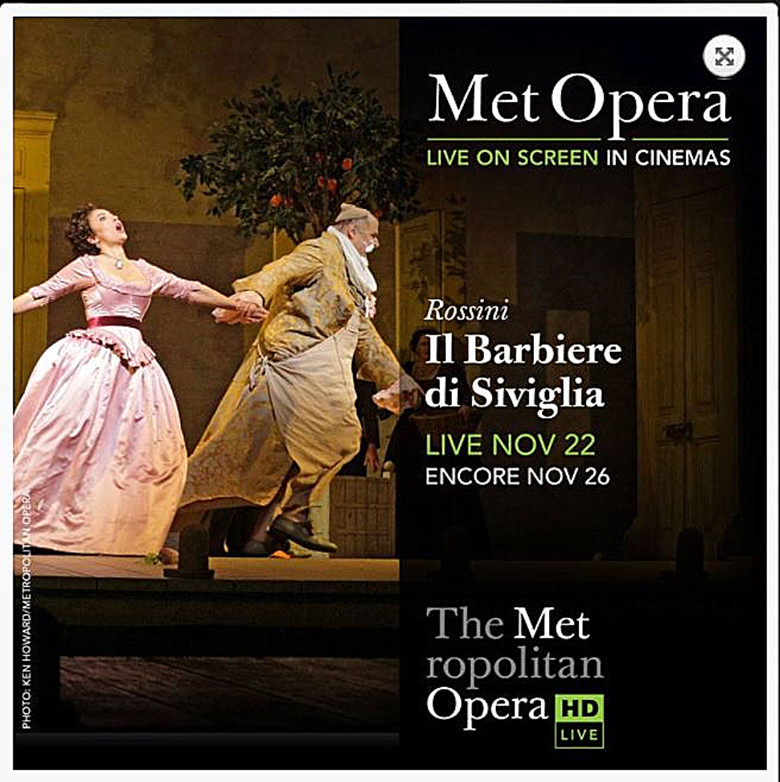 |
|||||||||||||||||||||||
| 歌剧《塞维利亚的理发师》简介 | |||||||||||||||||||||||
|
《塞维利亚的理发师》,二幕喜歌剧,以法国作家包玛蔡斯的同名讽刺喜剧为蓝本,并由史特宾尼编剧。罗西尼以短短13天一气呵成谱曲,但它的首演却不尽人意,是西欧歌剧史上十分著名的首演失败之一,失败的原因是多方面的。在罗西尼之前,当时意大利老资格的作曲家派西埃洛已将博马舍的喜剧《塞维利亚理发师》创作成歌剧。1816年,罗西尼受雇剧团的经理根据罗马教皇警察局的挑选又要他创作一部新的《塞维利亚理发师》。派西埃洛在观众中享有很高的声誉,罗西尼预料到会遇到麻烦。他事先写信给派西埃洛,请求他的准许。派西埃洛已经注意到了罗西尼这个年青的对手,回信时既客气又挖苦,说由他来批准罗马当局选定的脚本非常荣幸。尽管如此,相当多的观众仍认为罗西尼重新创作派西埃洛已经创作过的歌剧是胆大妄为,甚至感到非常气愤,1816年2月5日在罗马阿根廷剧院首次公演。首演当天,口哨声、喝倒彩声此起彼伏,观众几乎听不见演员在唱什么。第二天情况有所好转,一周以后,该剧的演出才获得巨大的成功。并与莫扎特的《费加罗的婚礼》共称为喜剧的双绝。很快成为世界各地歌剧院最重要的演出戏码之一,也使得此剧成为歌剧史上永放光芒的不朽名作。 罗西尼在剧中充分发挥了他所擅长的活泼生动的管弦乐音响流畅轻巧的旋律,以及率直畅快的节奏感,同时又把充满讽刺的愉快情节细腻地刻画出来,从剧本的情节上看来,《费加洛的婚礼》乃是《塞维里亚的理发师》的续篇。 17世纪西班牙的塞维利亚,年青的伯爵阿玛维瓦与富有而美丽的少女罗西娜相爱。罗西娜的监护人、贪婪的医生巴尔托洛也在打罗西娜的主意。伯爵在机智、正直的理发师费加罗的帮助下,冲破巴尔托罗的阻挠和防范,终于和罗西娜结成了良缘。 |
|||||||||||||||||||||||
|
|
|||||||||||||||||||||||
|
歌剧《塞维利亚的理发师》序曲 为庆祝1816年的罗马狂欢节,罗马阿根蒂那剧院经理请罗西尼写一部歌剧,名为《塞维利亚的理发师》。这部歌剧与莫扎特的《费加罗的婚礼》是姊妹篇,它们的脚本都是根据法国剧作家博马舍的《费加罗》三部曲改编而来的。 歌剧《塞维利亚的理发师》的剧情大致是这样的:有一个贪财好色的老医生想要霸占他所监护的一个贵族出身的少女,就用尽各种卑劣的手段禁止这年轻美貌的少女与任何男子接触,但是由于当地一位理发师费加罗的从中帮助,这个少女终于得与她的情投意合的情人结婚,而使老医生陷入狼狈不堪的境地。 序曲用奏鸣曲形式写成,但其中没有发展部。乐曲开始时是一段相当长的慢引子,这段引子以整个乐队奏出的两个响亮而有力的和弦开始,仿佛是为了敦促听众注意倾听似的;随后是弦乐器的窃窃私语和长笛的叹息。 序曲开始时的这段音乐,有效地把听者引到了这部歌剧的欢乐而戏谑的气氛中。接着又是整个乐队的有力的两击和跟随在这之后的同样的旋律进行,音乐逐渐地从那被抑制的抖动中扩展开来,这时候从管弦乐队的深处升起了一个温柔而亲切的旋律,宛如一首充满青春的爱情芳香的歌曲。总的说来,这一段引子所体现的是一种温柔而抒情的心境,而它的精致的结构、透明的色彩以及匀称的和声与调式都是这一段引子的特征。 接着,这沉思般的慢引子便被奏鸣曲形式的快速的呈示部所代替,这时候在断续的和弦的背景上出现了一个猛进的第一主题。 这个主题越来越壮大,越来越响亮,这一切恰如欢乐的生活闪耀着它那幸福的光芒一样。不多久,第二主题的出现取代了第一主题的发展,这个新主题起初由双簧管奏出,后来由法国号加以复奏,然后是第三主题。 第二和第三主题的展示描绘出一个节庆欢乐的舞蹈场面,这是狂欢节的游行的行列,它把所有的观众全都吸引进来。音乐从呈示部过渡到再现部时是以几个音响微弱的和弦作为枢纽的,在再现部中,音乐比前更清新、更欢快,结尾部非常宏伟、宽广而华美。整个序曲以这毫无节制的狂欢作为结束。 |
|||||||||||||||||||||||
|
An overture to the
opera the barber of seville To celebrate the carnival of Rome in 1816, the manager of Rome's Argentina theatre asked rossini to write an opera called the barber of seville.The opera is a companion piece to Mozart's "the marriage of figaro," both of which are based on French playwright henri beaumarchais's "figaro" trilogy. Opera plot of the story of the barber of seville is this: there is a greedy horny old doctor want to usurp his guardianship of a girl of noble birth, and use all kinds of despicable means to ban this beautiful young girl contact with any man, but because of a local figaro's help, the girl finally get married with her after the lover, and make the old doctor into disarray. The overture was written in sonata form, but there was no development.It began with a long, slow lead, which began with two loud, powerful chords from the whole orchestra, as if to urge the audience to listen;Then came the murmur of the stringed instruments and the sigh of the flutes. The music at the beginning of the overture effectively draws the listener into the joyous and playful atmosphere of the opera.Then came another powerful double blow from the whole orchestra, and the same melody that followed, and the music gradually expanded from the suppressed quiver, and out of the depths of the orchestra rose a soft and genial melody, like a song full of the fragrance of youthful love.On the whole, this introduction reflects a tender and lyrical state of mind, characterized by its delicate structure, transparent colors, and symmetrical harmonies and modes. The meditative slow lead is then replaced by the rapid exposition of the sonata form, when a progressive first theme emerges against the background of the broken chords. The theme grew larger and louder, just as the joyous life shone with its light of happiness.Soon after, the development of the first theme was replaced by the emergence of a second theme, first played by the oboe, then by the French horn, and then by the third theme. The display of the second and third themes depicts a festive dance scene, the procession of the carnival, which draws in all the spectators.The transition from the presentation to the recapitulation is centered on a few faint chords of sound, where the music is fresher and more cheerful than before, and the ending is very grand, broad and colorful.The whole prelude ends with this unbridled carnival. |
|||||||||||||||||||||||
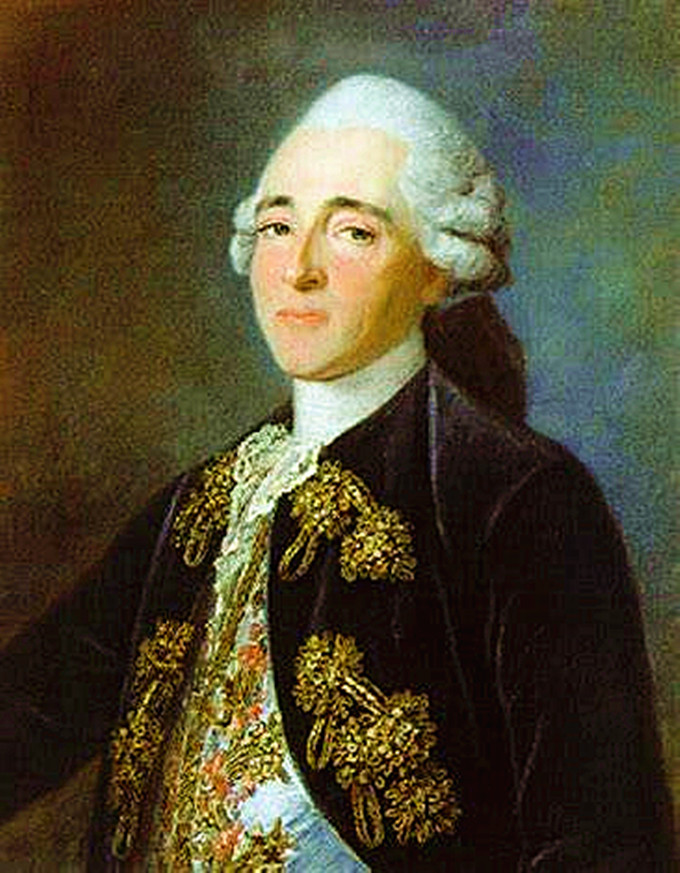 |
|||||||||||||||||||||||
| 加隆·德·博马舍(Caron de Beaumarchais) | |||||||||||||||||||||||
|
加隆·德·博马舍(Pierre-Augustin Caron de
Beaumarchais,1732.1.24—1799.5.18)原名彼埃尔·奥古斯旦·加隆。他的第一个妻子是一位贵族富孀,婚后不到半年就故世了。继承其妻一块名叫博马舍的领地,为了追求贵族的称号,他就把自己的姓氏改为博马舍了。 加隆·德·博马舍是一位法国博学者。在他一生的不同时期,他是一个钟表匠、发明家、剧作家、音乐家、外交家、间谍、出版商、园艺师、军火商、讽刺作家、金融家和革命家。 《塞维勒的理发师》和《费加罗的婚姻》是博马舍最成功的两部政治喜剧,演出后很快传到国外,并译成欧洲多国文字,在好几个国家的大都市上演。一七八○年奥地利音乐家莫扎特把《费加罗的婚姻》谱成歌剧。一八一六年意大利音乐家罗西尼又把《塞维勒的理发师》谱写成歌剧。一七八七年,博马舍又写了一部歌剧《达拉尔》,剧中描写了两个不同的人物,一个是荒淫暴虐的统治者达拉尔,另一个是受人民爱戴的爱国者阿达尔。在这部歌剧里,博马舍继续宣扬人类平等的启蒙思想,同时也表达了对开明君主的幻想。上演后,没有博得观众的赞赏。 |
|||||||||||||||||||||||
|
Pierre-augustin
Caron DE Beaumarchais (1732.1.24 -- 1799.5.18) was born Pierre Augustan
galon.His first wife was an aristocratic widow who died less than half a
year later.He inherited his wife's estate of beaumarchais, and in
pursuit of a noble title, changed his name to beaumarchais. Garon DE beaumarchais is a French polyglot.At various times in his life, he was a clockmaker, inventor, playwright, musician, diplomat, spy, publisher, gardener, arms dealer, satirist, financier and revolutionary. "The barber of seville" and "the marriage of figaro" were two of beaumachet's most successful political comedies.In 1708 the Austrian musician Mozart set the marriage of figaro to music.In 1816, Italian musician rossini wrote the barber of seville into an opera.In 1787, beaumarchais wrote another opera, dalal, in which two different characters were depicted, one a wanton and tyrantruler, the other a popular patriot, adar.In this opera, beaumarchais continues to promote the enlightenment idea of human equality, but also expresses the illusion of enlightened monarchy.After the performance, the audience failed to appreciate it. |
|||||||||||||||||||||||
|
|
|||||||||||||||||||||||
大都会歌剧院演出罗西尼歌剧《塞维利亚理发师》中文字幕(1988年) |
|||||||||||||||||||||||
| 二幕喜歌剧,以法国作家博马舍的同名讽刺喜剧为蓝本,并由史特宾尼编剧。从剧本的情节上看来,莫扎特《费加罗的婚礼》(av1723649)乃是《塞维里亚的理发师》的续篇。罗西尼在剧中充分发挥了他所擅长的活泼生动的管弦乐音响流畅轻巧的旋律,以及率直畅快的节奏感,同时又把充满讽刺的愉快情节细腻地刻画出来。 | |||||||||||||||||||||||
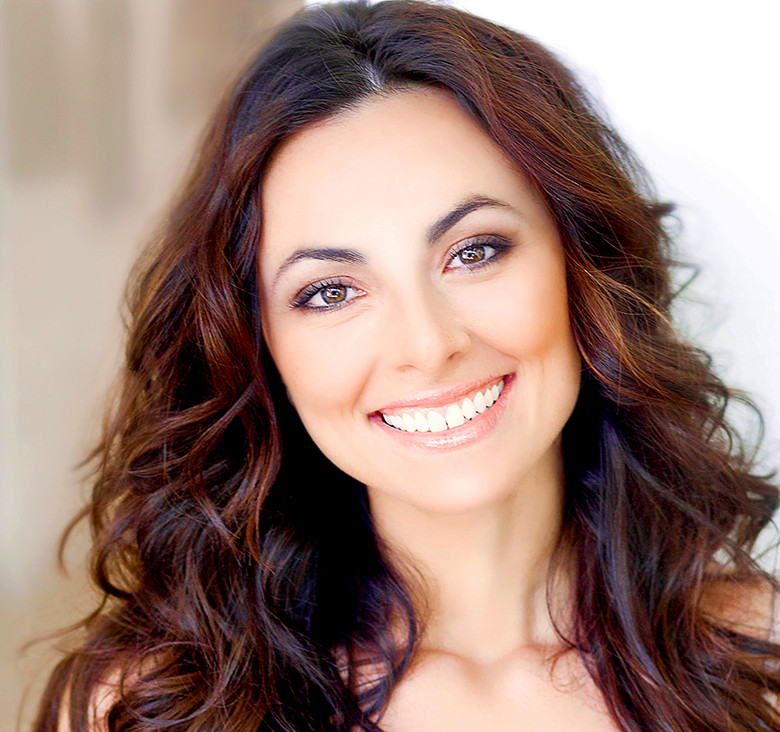 |
|||||||||||||||||||||||
| 2018年大都会歌剧新上演的《塞维利亚的理发师》中的罗西娜的伊莎贝尔·伦纳德(Isabel Leonard) | |||||||||||||||||||||||
|
伊莎贝尔·伦纳德(Isabel Leonard)已经在旧金山歌剧院(San Francisco
Opera)和芝加哥抒情歌剧院(Lyric Opera of Chicago)表演了这个角色,并获得了好评。 《芝加哥论坛报》的约翰•冯•莱茵说,伊莎贝尔饰演的罗西娜“很好地平衡了甜美与酱汁的味道”,她“运用广泛的技巧、花腔的灵活、惊人的身体美、魅力和舞台表现力,会让观众把女主角看得心花怒放。” |
|||||||||||||||||||||||
 |
|||||||||||||||||||||||
| 饰演罗西娜的伊莎贝尔·伦纳德(Isabel Leonard) | |||||||||||||||||||||||
| 大都会歌剧新上演的《塞维利亚的理发师》 | |||||||||||||||||||||||
|
大都会歌剧演员 克里斯托弗·马尔特曼·费加罗 伊莎贝尔·伦纳德·罗西娜 劳伦斯·布朗利伯爵 毛里齐奥·穆拉罗(Maurizio Muraro)巴托洛博士 塔·伯楚拉泽·唐·巴西里奥 由巴特利特·谢利制作 指挥 米歇尔·马里奥蒂 罗西尼 伊尔·巴比埃·迪·西维格利亚 拉尔维特 |
|||||||||||||||||||||||
|
The
Metropolitan Opera prsents Christopher Maltman Figaro Isabel Leonard Rosina Lawrence Brownlee Count Almauiua Maurizio Muraro Dr.Bartolo Paata Burchuladze Don Basilio Production by Bartlett Sher Conducted by Michele Mariotti Rossini IL BARBIERE DI SIVIGLIA RALF WEIKERT |
|||||||||||||||||||||||
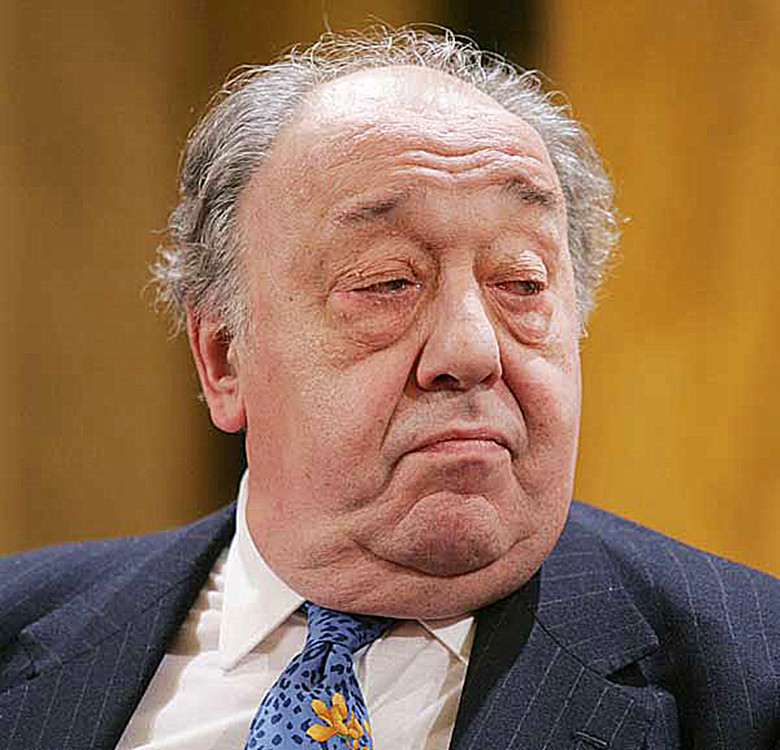 |
|||||||||||||||||||||||
| 2001年苏黎世歌剧院罗西尼的歌剧《塞维利亚的理发师》的指挥家尼洛 桑蒂(Nello Santi) | |||||||||||||||||||||||
|
尼洛 桑蒂 指挥 尼洛·桑蒂是一位意大利指挥家。 他与大歌剧院Zürich合作了60年,是纽约大都会歌剧院的固定指挥。 他专注于意大利的剧目,特别是威尔第和普契尼的歌剧,其风格遵循托斯卡尼尼的传统。 他声音和录像的意大利歌剧,其中包括1971年Leoncavallo与多明戈的丑角,蒙特塞拉特Caballe和谢里尔萨1976年Montemezzi L爱一些混乱关系与安娜Moffo再保险,多明戈和巴勃罗·埃尔韦拉,我由于Foscari威尔第的《2000年,2006年多尼采蒂的唐帕斯夸里苏黎世生产。 圣蒂凭记忆指挥,他说:“我喜欢威尔第的全部作品,但当他谱写《弄戈莱托》、《风流浪子》和《茶花女》时,他的状态非常优雅。” |
|||||||||||||||||||||||
 |
|||||||||||||||||||||||
| 尼洛 桑蒂(Nello Santi) | |||||||||||||||||||||||
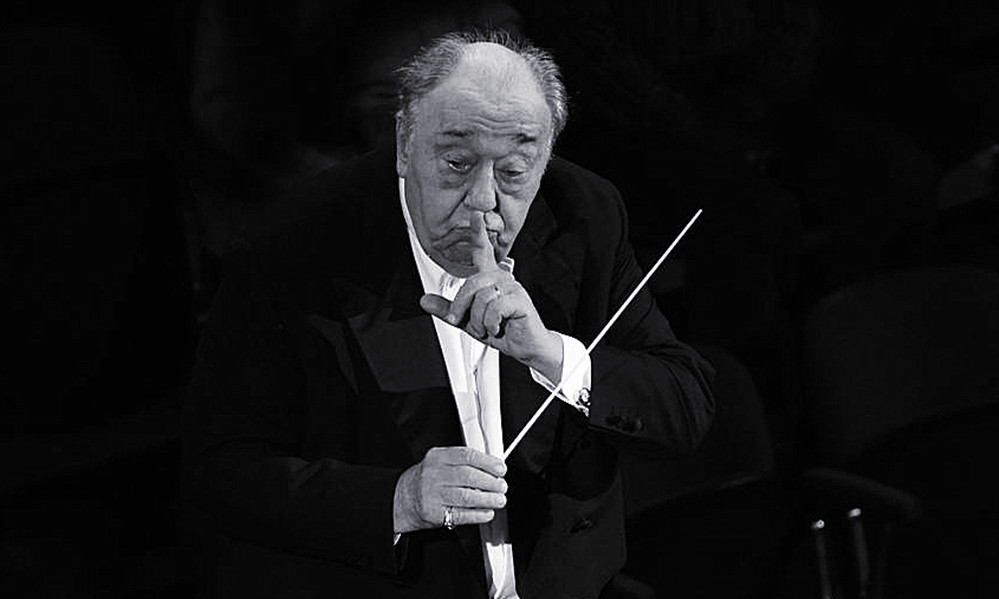 |
|||||||||||||||||||||||
| 尼洛 桑蒂(Nello Santi) | |||||||||||||||||||||||
|
Nello Santi Conductor Nello Santi was an Italian conductor. He was associated with the Opernhaus Zürich for six decades, and was a regular conductor at the Metropolitan Opera in New York City. He was focused on Italian repertoire, especially operas by Verdi and Puccini, in a style following the tradition of Toscanini. He made sound and video recordings of Italian operas, including in 1971 Leoncavallo's Pagliacci with Plácido Domingo, Montserrat Caballé and Sherrill Milnes, in 1976 Montemezzi's L'amore dei tre re with Anna Moffo, Domingo and Pablo Elvira, in 2000 Verdi's I due Foscari, and in 2006 Donizetti's Don Pasquale in a Zürich production. Santi conducted from memory, and said "I love all of Verdi, but when he composed Rigoletto, Il Trovatore and La traviata he was in a profound state of grace." |
|||||||||||||||||||||||
|
|
|||||||||||||||||||||||
 |
|||||||||||||||||||||||
1988年指挥大都会歌剧院演出罗西尼歌剧《塞维利亚理发师》的指挥家拉尔夫·维克(Ralf Weikert) |
|||||||||||||||||||||||
|
目前在瓦尔基里安的2009年皇家歌剧院和Elektra的2010年演出。 拉尔夫·维克特(Ralf Weikert)出生于奥地利,在汉斯·斯沃洛夫斯基(Hans Swarowsky)教授的指导下在维也纳音乐学院学习。 他一直担任波恩歌剧院的音乐总监,直到1977年,之后担任法兰克福歌剧院的GMD(通用音乐总监),1981年成为萨尔茨堡莫扎特音乐团和Landestheater的第一位指挥。他曾在维也纳国家歌剧院,汉堡歌剧院和德意志歌剧院演出柏林,慕尼黑的巴伐利亚国家歌剧院和纽约大都会歌剧院。 自1971年以来,拉尔夫·维克特(Ralf Weikert)一直是萨尔茨堡,普罗旺斯地区艾克斯,布雷根兹和维罗纳音乐节的定期嘉宾。 从1983年到1992年,他担任苏黎世歌剧院音乐总监。 如今,他是一名自由歌剧和音乐会指挥,并有定期的任务,例如在苏黎世,慕尼黑,杜塞尔多夫,德累斯顿,维也纳,斯图加特,巴伦西亚等地。 |
|||||||||||||||||||||||
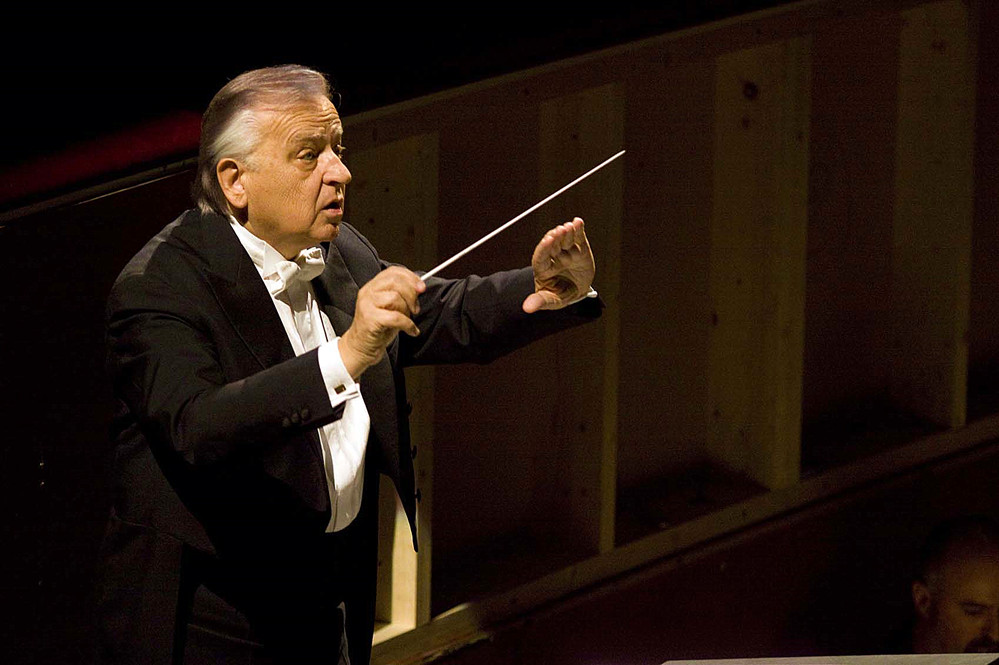 |
|||||||||||||||||||||||
|
Ralf Weikert Aktuell på Kungliga Operan 2009 med Valkyrian och 2010 med Elektra. Ralf Weikert är född i Österrike och utbildad vid bl a Musikhockschule i Wien under professor Hans Swarowsky. Han var musikchef vid Bonnoperan till 1977, därefter GMD (Generalmusikdirektor) vid Frankfurtoperan, förste dirigent för Mozarteum-orkestern och Landestheater i Salzburg från 1981. Han har t ex dirigerat vid Wiener Staatsoper, Hamburgoperan, Deutsche Oper Berlin, Bayerische Staatsoper i München och på Metropolitanoperan i New York. Ralf Weikert har sedan 1971 varit en regelbunden gäst vid festspelen i Salzburg, Aix-en-Provence, Bregenz och Verona. 1983-1992 var han musikchef vid Zürichoperan. Idag arbetar han som frilansande opera- och konsertdirigent med regelbundna uppdrag t ex i Zürich, München, Düsseldorf, Dresden, Wien, Stuttgart, Valencia etc. |
|||||||||||||||||||||||
| 罗西尼《塞维利亚的理发师》2001年苏黎世歌剧院 Rossini - Il Barbiere di Siviglia | |||||||||||||||||||||||
|
吉奥阿奇诺·罗西尼-伊尔巴比雷·迪·西维利亚苏黎世歌剧院,2001年焦阿基诺·罗西尼:塞维利亚的理发师 2001年 苏黎世歌剧院 瓦西里娜·卡萨洛娃-罗莎娜 曼努埃尔·兰扎-费加罗 雷纳尔多·马西亚斯-阿尔马维瓦 Nikolái Ghiaúrov -巴西利奥 卡洛斯·乔松-巴托洛 瓦莱里·穆尔加-菲奥里洛 彼得·卡尔曼-办公室 舞台导演- 格里沙·阿萨加罗夫 制作- 路易吉·佩雷戈 指挥-尼洛·桑蒂 爱乐乐团苏黎世 苏黎世歌剧院合唱团 |
|||||||||||||||||||||||
|
Cast: Vasselina Kasarova - Rosina Manuel Lanza - Figaro Reinaldo Macias - Almaviva Nikolái Ghiaúrov - Basilio Carlos Chausson - Bartolo Valeri Murga - Fiorillo Peter Kalmán - Offizier Stage director - Grischa Asagaroff Productions - Luigi Perego Conductor - Nello Santi Philharmonia Zurich Chorus of the Zurich Opera |
|||||||||||||||||||||||
|
|
|||||||||||||||||||||||
| 未得原作者编者授权严禁转载www.mt77.com任何内容 | |||||||||||||||||||||||
|
|
|
||||||
|
copyright © 2003-2005 xilu.com all rights reserved. |
||||||
|
|
||||||

